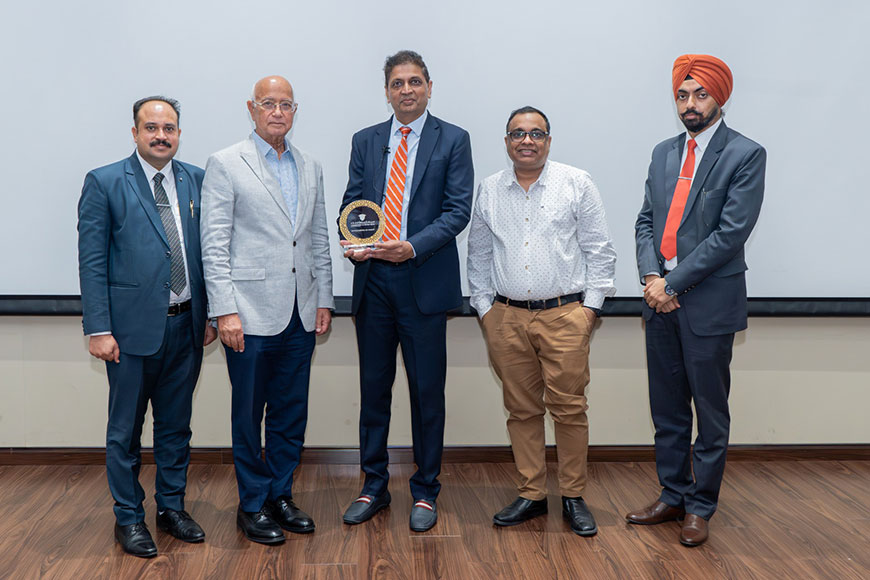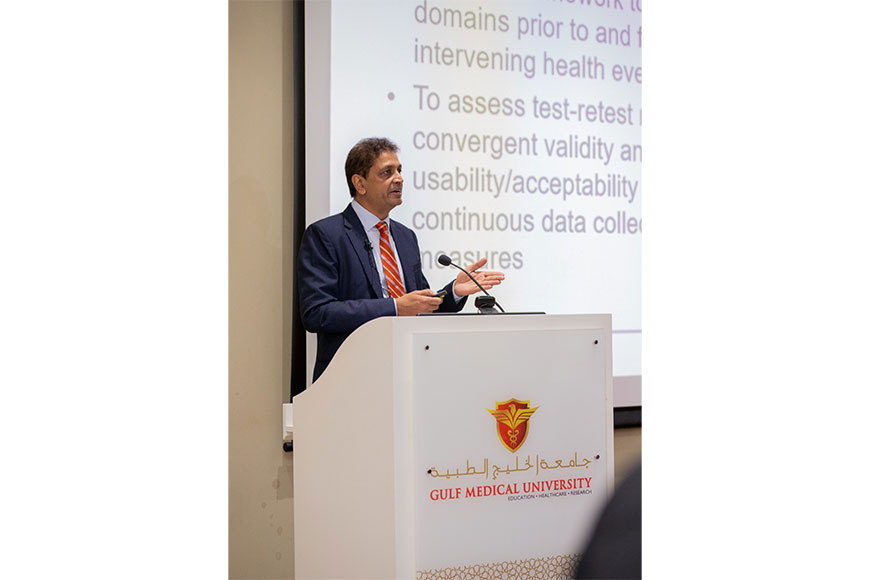Thumbay Institute of AI in Healthcare Discusses AI Integration to Improve Patient Outcomes
- Diverse unstructured data sources, abundant in the healthcare industry, are now assets for generative AI. Professor Ranka spoke at the Gulf Medical University about how healthcare institutions may build digital competency to provide treatment while reducing financial hardship.
To highlight the intersection of artificial intelligence (AI), data analytics, and healthcare, a lecture by Professor Sanjay Ranka of the University of Florida was conducted by the Thumbay Institute of AI in Healthcare at the Gulf Medical University, Ajman, UAE campus. The talk was attended by the chancellor, a researcher, and faculty members.

The discussion focused on using data to understand disease patterns in ageing populations, the associated costs, and how healthcare professionals can quickly turn patient interactions into clinician notes using new platforms.
Professor Ranka emphasized the critical role played by medical practitioners in documenting the problems they see and building a dataset that might be used to train machine learning algorithms. “The main objective is to create an Atlas and streamlined method that integrates segmentation, image processing, and labeling. It involves fusing the complexity of modern imaging technologies, sensors, and algorithms in a realistically interpretable way,” he stated.

The talk also covered the development of deep learning, showing how it went from its mysterious beginnings to more clear and understandable techniques. Dissecting the layers of deep learning revealed a clear grasp of each element. “It’s no longer a black box,” the professor noted.
Professor Ranka acknowledged the possibility of merging healthcare data, such as that from electronic health record (EHR) systems, at the levels of hospitals and governments. “Consider a collaborative effort involving healthcare facilities from other countries, such as the US and the UAE. Everyone contributes without revealing their data in full. A universally applicable model that is also customized for regional differences develops, which can be beneficial for all,” he explained. Techniques to amalgamate vast, imprecise datasets with smaller, specific patient-focused data were presented- bridging the gap between scale and precision.
Professor Hossam Hamdy, the chancellor of Gulf Medical University, expressed his gratitude to Professor Ranka during a felicitation ceremony that marked the completion of the talk. He commended Professor Ranka for taking his time to give the audience a thought-provoking presentation and guiding them through the dynamic interactions of AI in the constantly changing world of healthcare technology. “We are immensely privileged to have been guided through his studies and research conducted in the US, one that bridges the realms of technology and healthcare by his expertise.”
The Thumbay Institute of AI in Healthcare is dedicated to leveraging the potential of Artificial Intelligence (AI) in medical education, bringing together experts in medicine, decision science, data analytics, and AI technologies. The institute offers certificate programs, training, and the development of digital skills for healthcare workers in partnership with prestigious colleges like the University of Applied Sciences Upper Austria. In September 2023, the institute will start full-fledged certificate programs, which will pave the way for the transition into long-duration programs as per the Ministry of Education UAE guidelines. Students who complete these programs will be equipped to develop AI solutions specifically suited to the health professions industry.





